Research
Fundamental Research Mission
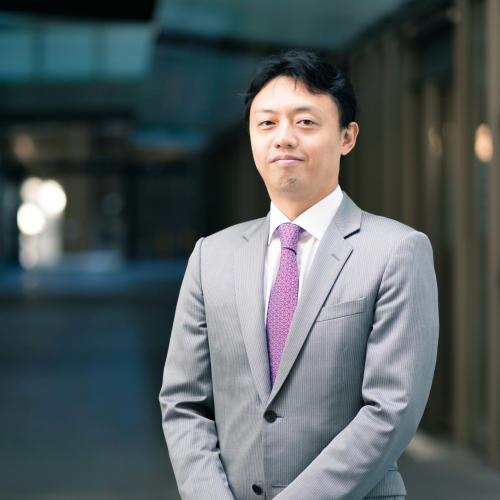
The Matsuo-Iwasawa Laboratory conducts a wide range of fundamental and applied research
in Artificial Intelligence (AI), focusing on deep learning.
AI is a field that has a history of about 60 years,
but little is known about the mechanisms of intelligence or the structure of the brain.
Of course, we have partial knowledge about the brain, but there are still many mysteries,
such as how we can have this kind of cognition, learn, speak a language, and have consciousness.
We hope to elucidate the mechanism of human intelligence by creating it through engineering.
With this mission, we are researching world models, large-scale language models, semantic understanding, robotics, and brain AI, among other things.
Reference
・Interview with Professor Yutaka Matsuo (Part 1): Toward the realization of an ecosystem on par with Silicon Valley
・Interview with Professor Yutaka Matsuo (Part 2): Thoughts on Basic Research at Matsuo Lab.
・Paper: Two-Story Architecture of Intelligence
Research area
There are approximately 20 researchers (as of July 2024) in this laboratory, and each is pursuing their research while setting their own research themes under the mission of “creating intelligence. Although we plan to expand our research areas in the future, our research is currently divided into six major research units: “World Models,” “Learning Algorithms,” “Robotics,” “Large-scale Language Models,” “Brain-inspired Intelligence,” and “Social Implementation.”
(For a list of recently accepted papers, please click here )
In addition to research, students can be involved in educational activities aimed at systematizing knowledge and fostering advanced human resources, such as the World Model and Simulator Endowed Chair, large-scale R&D projects such as Weblab-10B and the GENIAC project, and joint research (social implementation) with companies.
Please refer to the slide below for details.
Click here for the interview with Associate Professor Iwasawa, who is mentioned in the slide.
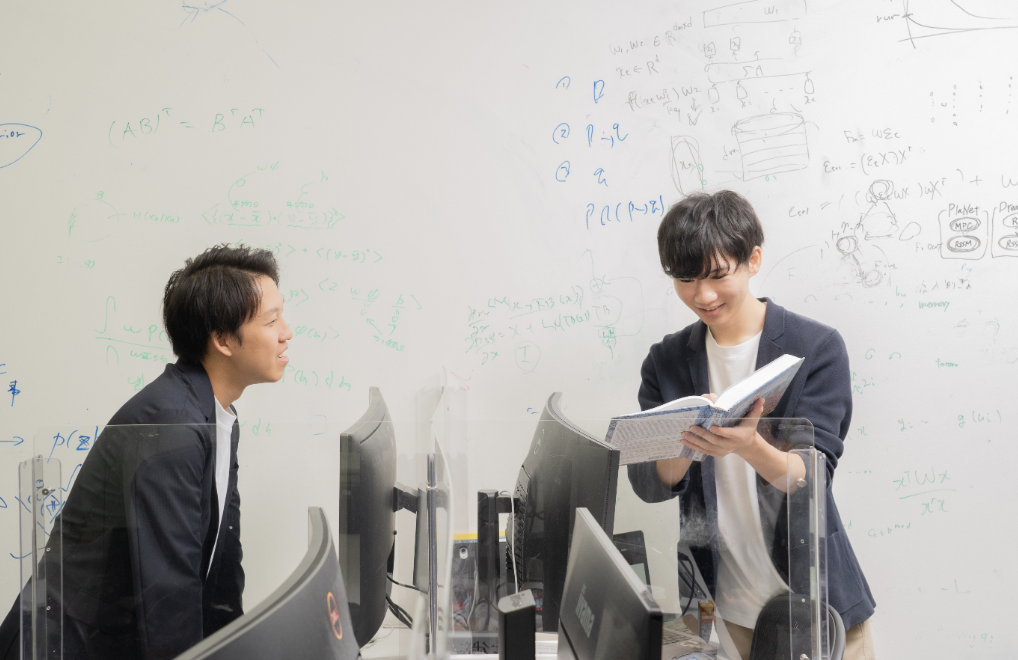
World Model
The “world model,” which has been rapidly studied in the field of planning in recent years, is attracting attention as a key topic for the future of AI. The basic research team at the Matsuo-Iwasawa Lab, with the vision of “creating intelligence,” believes that world models are essential to realizing intelligence. To this end, we are conducting research intending to construct a world model that can adapt to unknown environments by capturing the environment’s structure from various information sources. Our research results have been accepted by many international conferences, including ICLR, NeurIPS, and ICML.
In addition, the ” World Model Simulator Endowed Chair ” has been established to promote the systematization of knowledge, human resource development, and the application and implementation of the world model in the field of robotics.
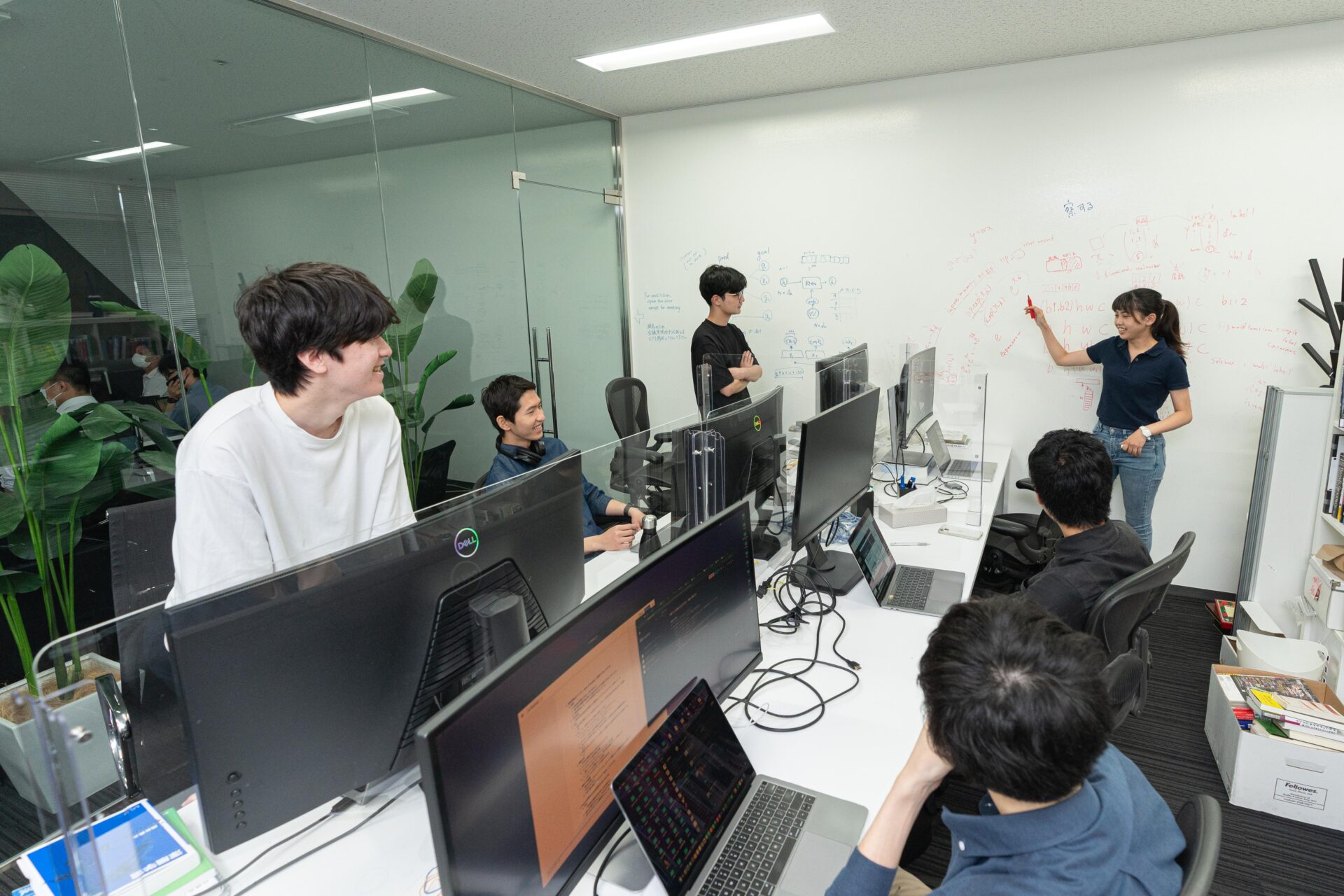
Next Generation
Neural Networks
Current deep learning requires a priori assumptions about structure and has particular challenges in abstracting and acquiring higher-order actions for time-series data, including actions.
We are working on NeuroAI, acquisition of hierarchical behaviors through self-supervised learning, and mechanisms for self-generation of neural networks with the aim of developing new models and learning algorithms that break through the limitations of deep learning.
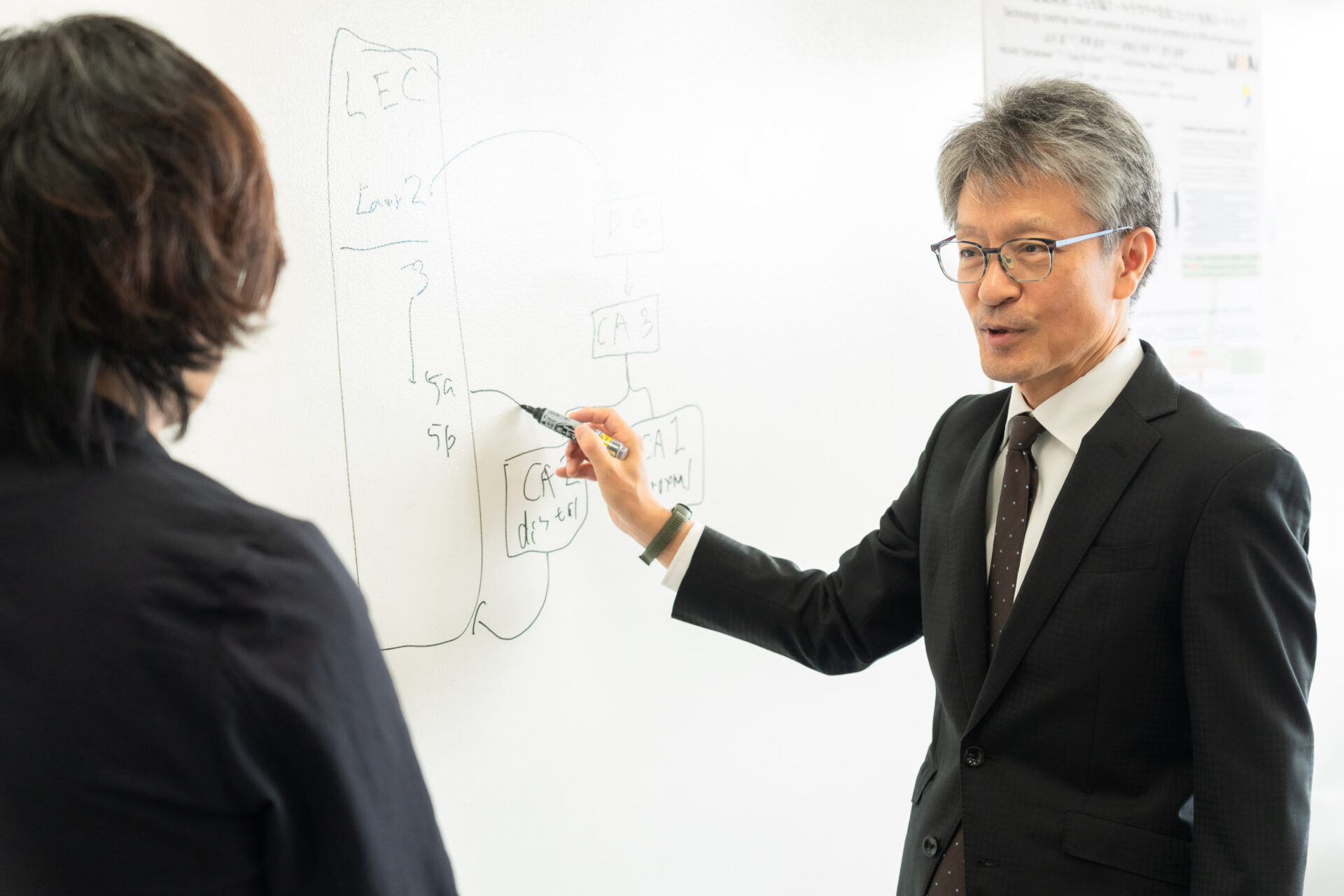
Brain-inspired Intelligence
Current artificial intelligence technologies based on deep learning have already shown performance comparable to or even better than humans in areas such as pattern recognition and language processing. However, this is only an extension of a small portion of the human brain’s potential. In reality, current technologies require vast amounts of data and computational power. In addition, abilities such as semantic understanding of language, self-awareness/metacognition, and hierarchical control have not been realized at a human-like level.
Therefore, our laboratory is engaged in research to elucidate the information representations, mechanisms, algorithms, and architectures that support the computational functions of the brain while considering the rapidly accumulating findings in neuroscience. In particular, Brain Reference Architecture Driven Development is a unique method of brain reference architecture-driven development. One of the motivations for this research is to reexamine the question, “What is a human being? At the same time, we aim to connect our findings to research on world models and robotics to realize them as highly practical engineering technologies.
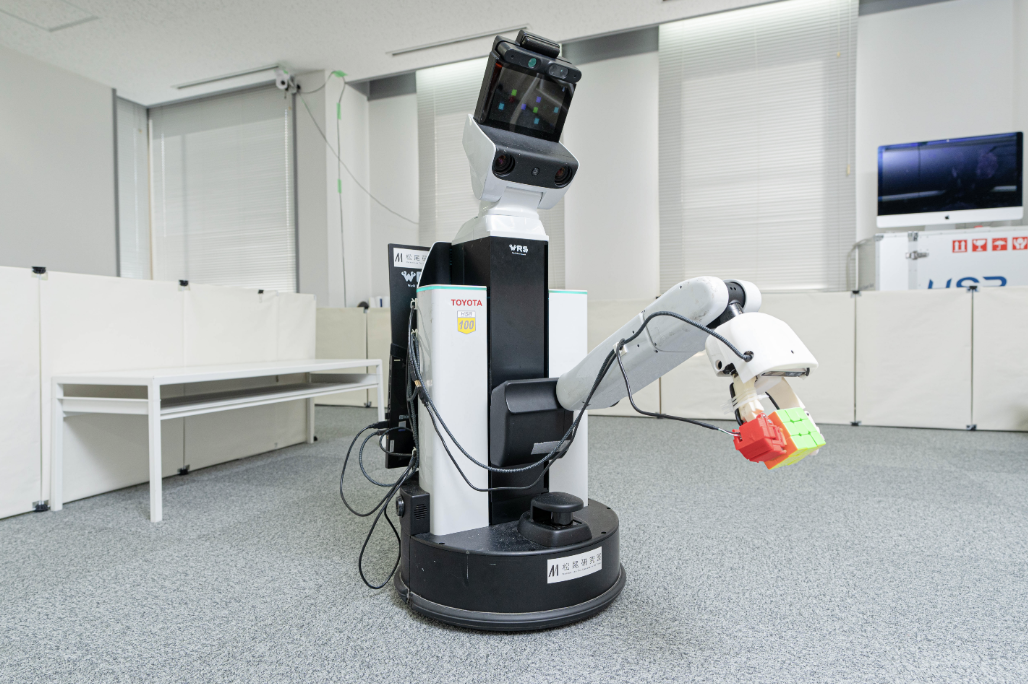
Robotics
Through real robots that interact with the real world, we promote robotics research in order to approach the Matsuo Lab’s goal of unraveling “what intelligence is.
In addition to actual robots such as robot arms and mobile manipulators, various simulators, VR-related equipment, 3D printers, and sensors such as depth cameras, motion capture, and tactile sensors are available for use in combination with your own research and development activities. In addition to the in-home environment, a dedicated floor for real-world verification of robots is also available.
TRAIL (Tokyo Robot And Intelligence Lab ) also operates as a research and development community and has achieved high results in national and international RoboCup competitions. Our research results have been published at many international conferences, including IROS and ICRA. For more information about Showcase, please click here.
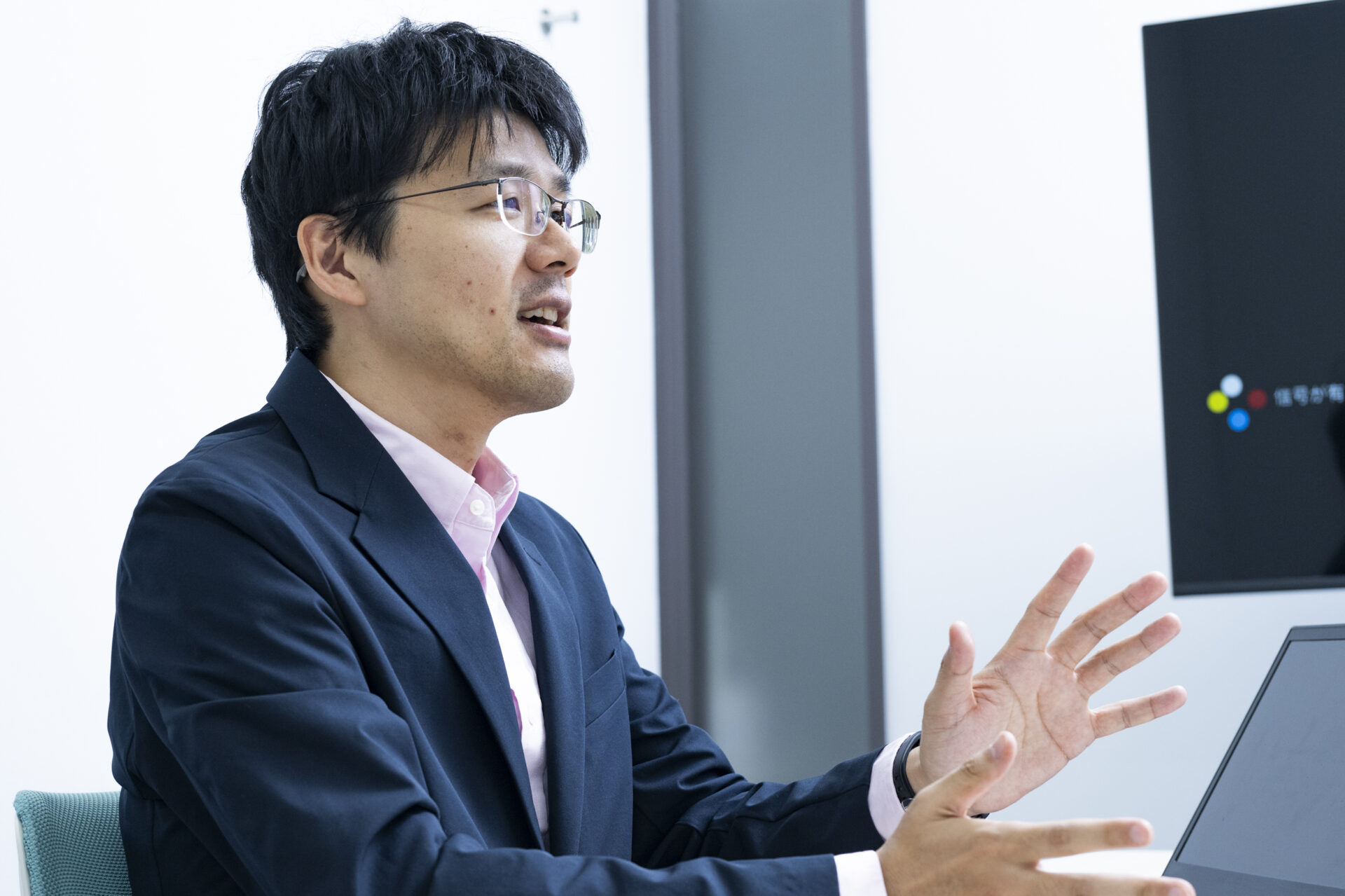
Large language model
While the emergence of large language models (LLM) has dramatically evolved natural language capability, it has also highlighted many issues that are essential for accelerating social implementation, such as hallucination and bias countermeasures.
In addition, despite LLM’s performance evolution, the source and operating principles of intelligence, such as how capability is realized, are not yet accurately understood, which is an important issue in defining and realizing intelligence. In our laboratory, we are studying the understanding of LLM’s operating principles, the control of their behavior, and the next generation of LLM. In addition to research, the laboratory develops LLM, maintains a large-scale training corpus, and investigates the implementation of state-of-the-art technologies.
We are also promoting the development of the “Large Language Modeling Course,” which utilizes the knowledge gained from our research and development and is also engaged in human resource development. Our research results have been published at many international conferences, including NAACL and EMNLP.
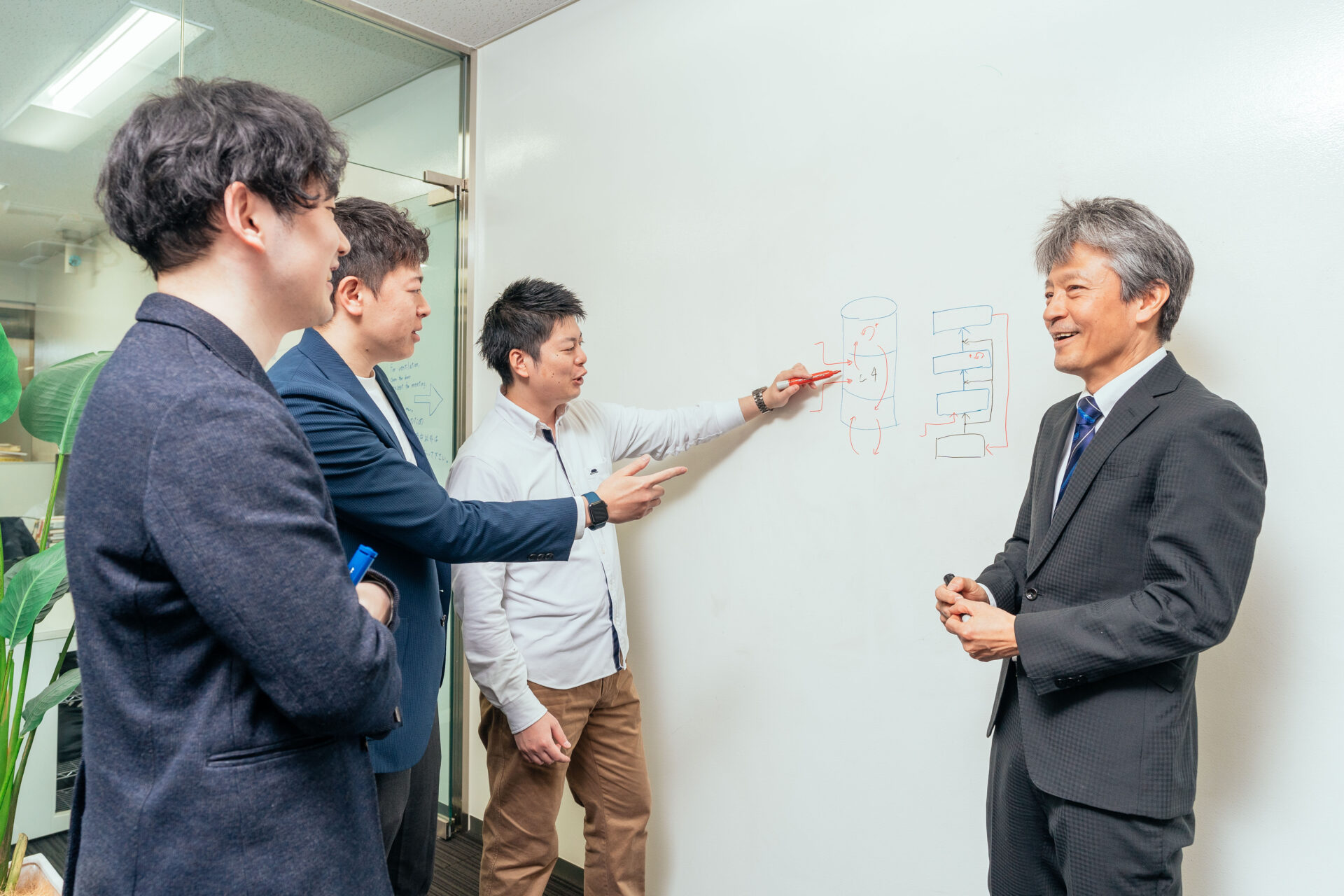
Social Implementation
We create new value by applying basic technologies to real-world problems and promote social implementation by returning the results to basic research. With the dramatic technological advances in fundamental models, innovations are expected in all fields, including automated driving, medicine, drug discovery, and finance. However, large datasets are essential for training fundamental models, and the annotation cost and the collection and management of huge unlabeled data are major barriers.
We are working on data-efficient learning, such as active learning and weakly supervised learning, and developing methods that effectively incorporate domain knowledge to enhance real-world applicability. Under the philosophy of AI for social good, we are collaborating with industry, academia, and government to solve problems. We will return the knowledge gained in solving the problem and the limitations of the technology to basic technology and challenge not only machine learning but also international conferences on computer science and HCI.
Computing environment
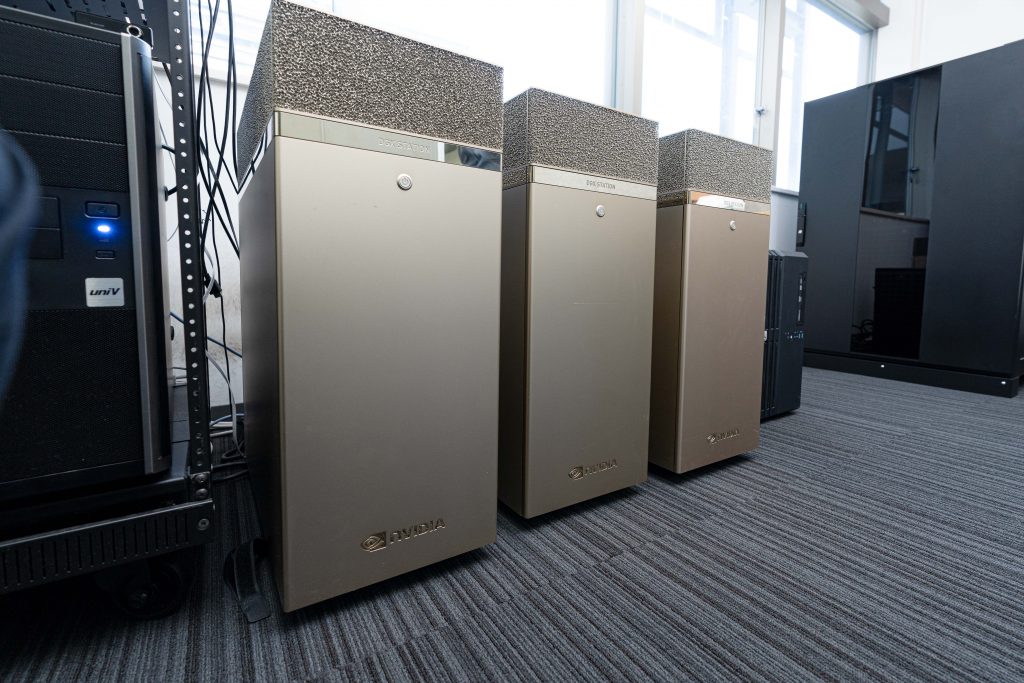
The Matsuo Lab has an HPC team that facilitates deep learning research through state-of-the-art computational technology. We believe that good infrastructure plays a very important role in research, and we provide cutting-edge technology to students and researchers daily.